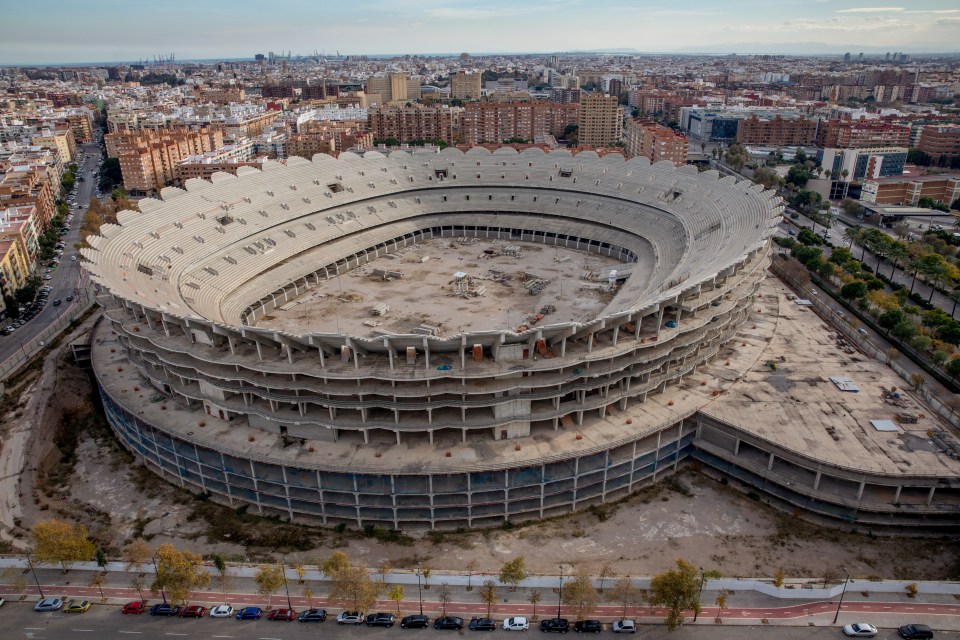Spain’s newest stadium will become the fourth largest in the country once it is finally completed.
The long-awaited arena first began construction in 2007 before sitting abandoned for 16 years.


However, Valencia restarted their project in January with a view to moving into the Nou Mestalla by 2027.
It comes as part of a plans launched by club president Kiat Lim for the arena.
The La Liga side previously began construction on their planned new home in August 2007.
Much of the stadium’s skeleton had been built by February 2009 when the project was paused indefinitely.
It came amid financial woes for Valencia, who had been plunged into debts of £350million.
As a result, the scheduled move in before the start of the 2009/10 season was shelved.
Fans have since had to wait 16 years for construction to restart, with the club continuing to play at their current home, the Mestalla.
The 49,430-capacity arena is the eighth largest in Spain and has been their ground since 2007.
Meanwhile, their new stadium will become the fourth biggest in the country with a projected capacity of 70,000.
It would leave only the Nou Camp, Santiago Bernabeu and Atletico Madrid’s Metropolitano Stadium with the ability to house more fans.


The latest steps in the project were confirmed in January as construction resumed.
Valencia have struck a deal with Spanish firm FCC Construccion to carry out the revamped plans for the stadium.
A statement from the club confirming the resumption of the project read: “The Nou Mestalla is the most significant non-sporting project in Valencia CF’s over century-long history.
“With a seating capacity of 70,044, it will be a state-of-the-art stadium capable of hosting top-tier FIFA and UEFA matches, as well as major events.
“The design will incorporate the latest trends invisibility, safety, and comfort, ensuring an enhanced experience for all fans.
“The new stadium will offer a diverse range of experiences that cater to all audiences and will be centrally located in Valencia, significantly impacting the lives of its citizens.


“It will provide year-round entertainment, featuring experiential restaurants, leisure activities, a megastore, a museum, and an auditorium.
“The stadium aims to be an innovative hub for fans on both matchdays and non-matchdays.”
FCC previously worked on the redevelopment of the Bernabeu as well as the Metropolitano and Espanyol’s RCDE Stadium.
Despite construction resuming, though, the Nou Mestalla will not be a host venue for the 2030 World Cup.
Spain are set to co-host the tournament alongside Portugal and Morocco in five years time.
A total of 20 candidates have been shortlisted to host matches, with Valencia’s new stadium absent from the proposed venues.



